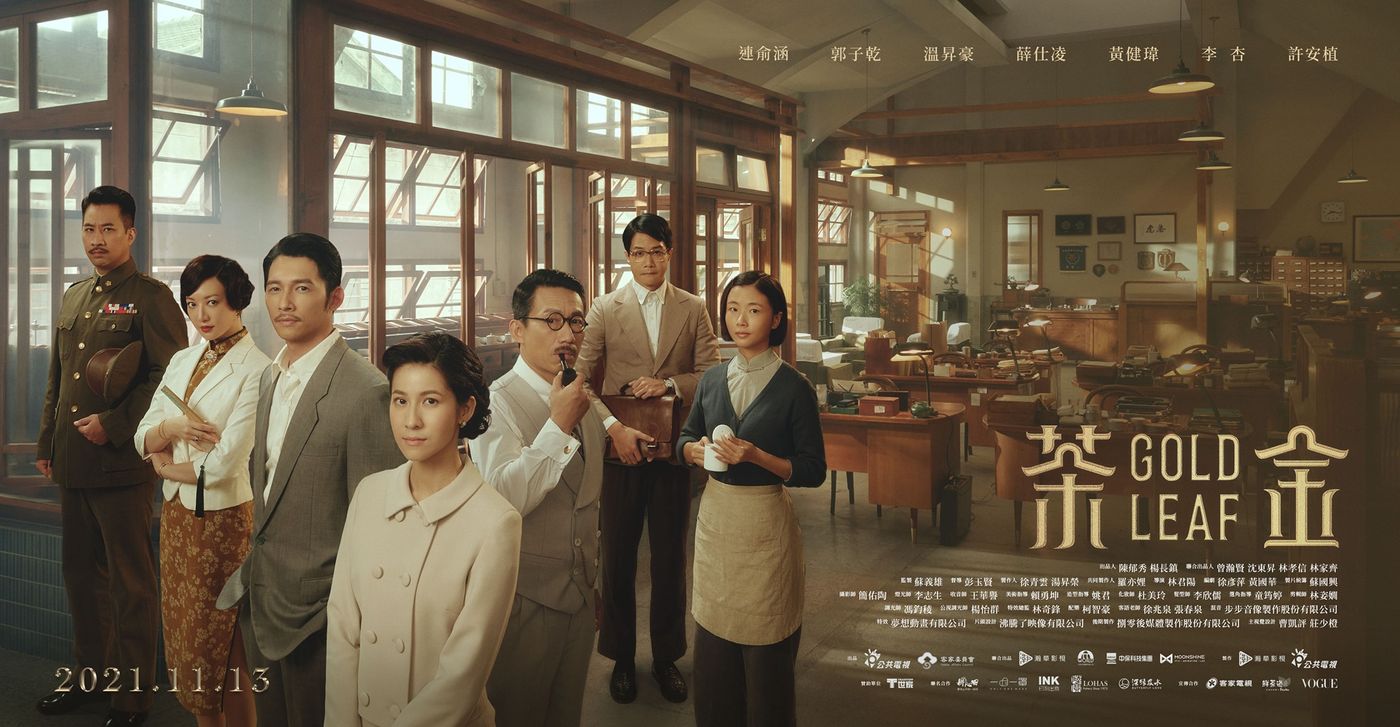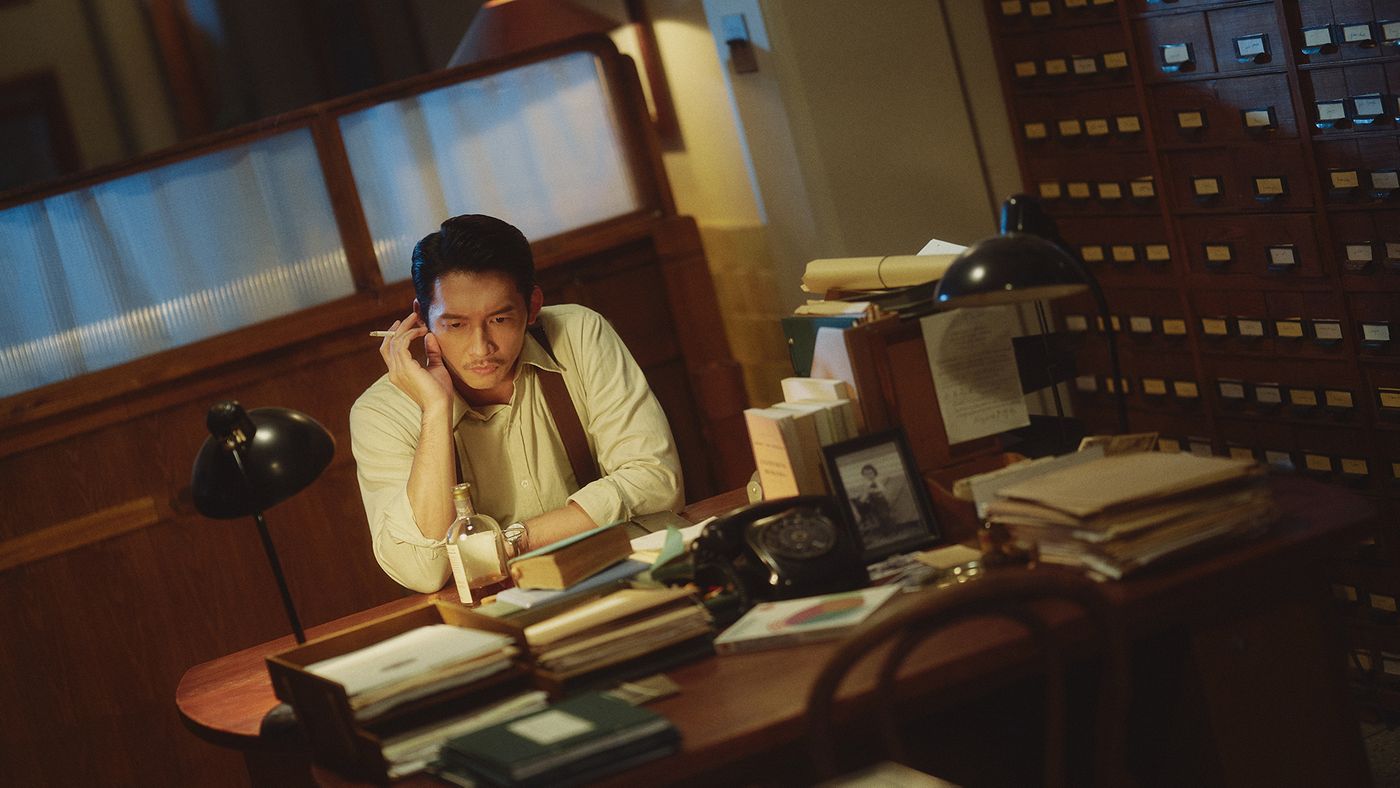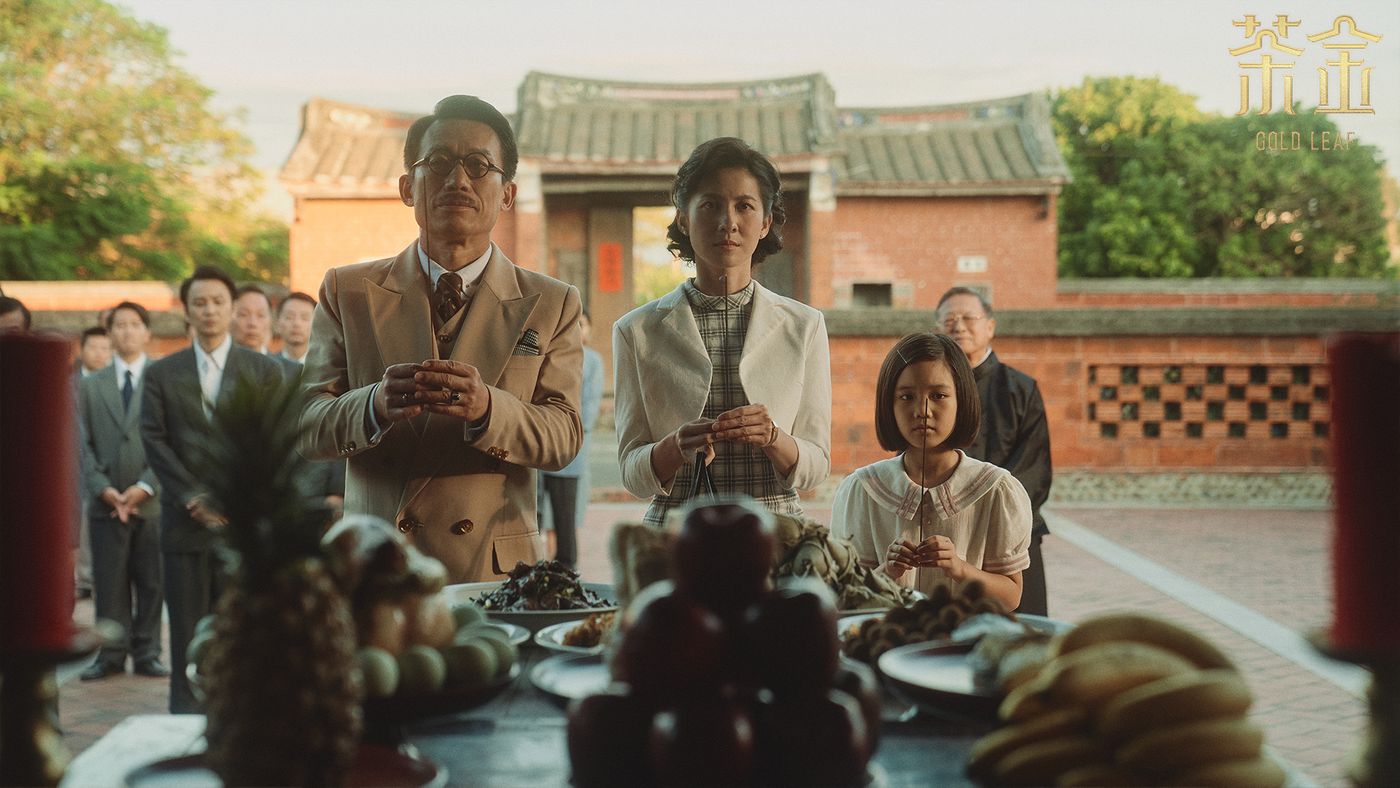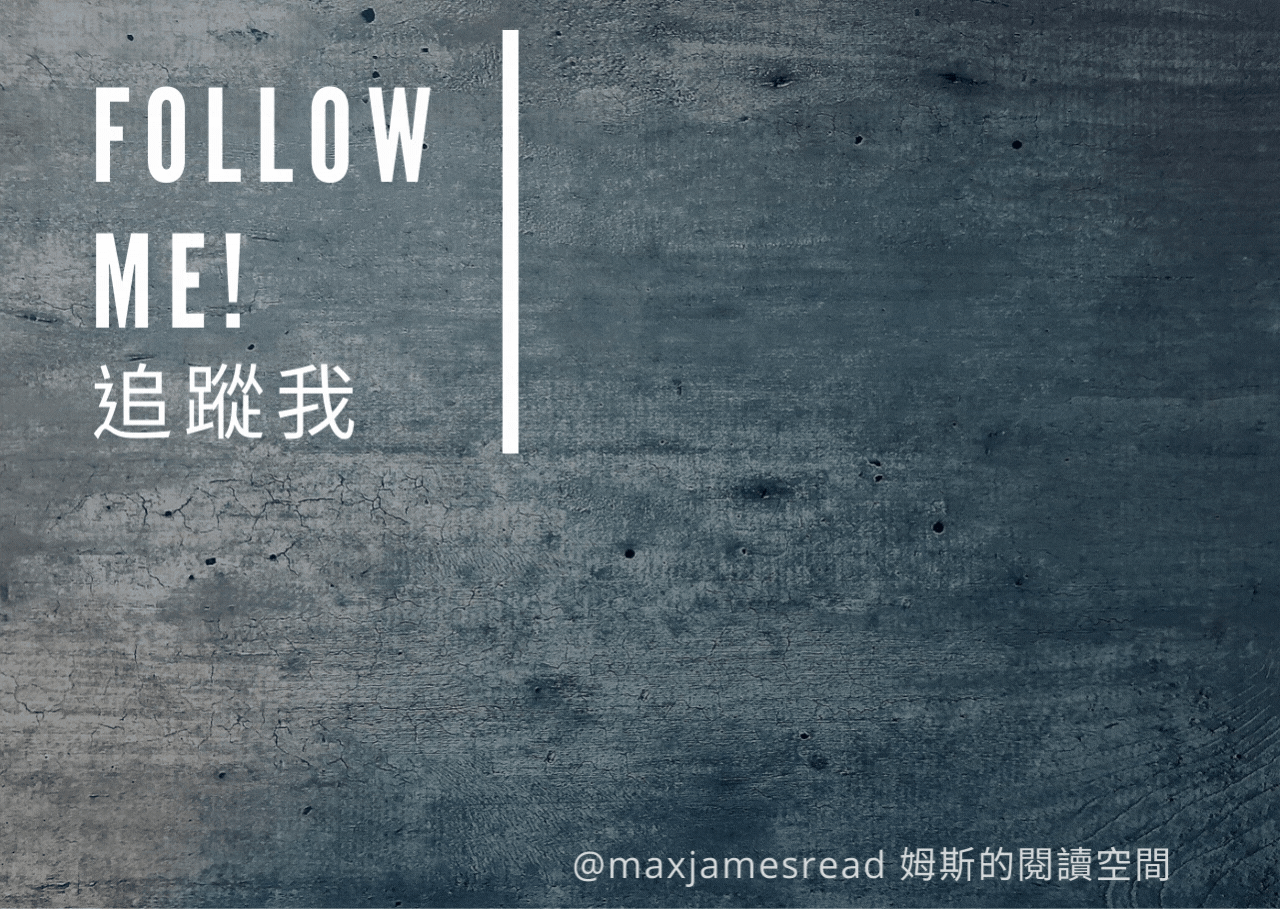"Tea Gold": The mellow fragrance that blooms only when injured

"Tea Gold" was the most anticipated Taiwanese drama last year. I finally finished my meal recently and liked it very much. It has the mellow heritage of the times, and the characters are drawn together, making the plot ripples.
In the ceremony at the end of 2021 , I mentioned that I wanted to try to write more movie and drama experiences. It seems like a good idea to use "Tea Gold" as a "Gold" stone! Let me share some of my takeaways from a historical, aesthetic, and women's perspective.
[The image of all beings under the torrent of history]
This play is set around 1950 and is adapted from a true story. It takes the development of Xinpu tea industry as the axis and connects the complex and multi-faceted relationships in the great era. There are entanglements in business and war, and there are treacherous and ever-changing competition and cooperation between countries, bringing out a very rich appearance of all beings.
The triangular relationship between the Nationalist government, the United States and Taiwan is interesting. The U.S. brought U.S. aid to fight the CCP; the Nationalist government was defeated by China, and was forced to temporarily settle in Taiwan to find an opportunity for counter-offensive; Taiwan was a Japanese territory during the war and was bombed by the Allied forces. After the war, it was inexplicably accepted by the Nationalist government. Embarrassing character. In the first episode, the deputy director questioned KK, which was a reflection of the situation in Taiwan at that time.
The national government and the United States have their own scheming, but a crisis is a turning point. Such a chaotic and changeable situation allows Zhang Yixin to take advantage of the situation to negotiate between China and the United States (of course, Wengui also has merit). From selling tea to the US military, to arranging the export of green tea, and finally to the Gold Award for Beauty Tea. This is not only the story of the local tea industry in Hsinchu, but also the epitome of Taiwan's struggle to rise under the multi-faceted attack. Producer Tang Shengrong said:
I hope that through this drama, Taiwanese people will not be afraid of the ever-changing international situation and the treacherous environment, stick to their beliefs, never bow to the environment, and find positive strength in the face of adversity and anxiety.

The above is about the bright side, while the dark part of the play points to the shadow of the party-state.
For example, the fertilizer factory, which was managed with great difficulty, was still held up in the end; the volatile monetary policy made Sunlight survive the crisis of 40,000 for 10,000, but in the end, it could only sell the foreign-style building and step down. .
In addition to shopping malls, the persecution of ordinary people is even more uncomfortable.
The magazine "Democracy" in the play naturally reminds me of "Free China" founded by Lei Zhen. Unfortunately, the voice of daring to cry was not allowed in that era, and after all, only the gendarmes were knocked on the door. And KK and Xia Muxue, the two broken people, can't be perfect for each other after all, and even Xiaoyueting has to be left behind. The three people at the end share a fragrance, although they are smooth and careless, they still make people feel a little sour.

【Aesthetics with a sense of the times】
The historical background discussed above was gradually felt as the plot unfolded. But what surprised me at the beginning of "Tea Gold" was still the aesthetics of the top drama. Even me, a waste engineer with little talent for art, can deeply feel the magic of the pictures in the play.
After doing a little homework, I realized that those seemingly natural pictures are behind the painstaking efforts of everyone. Only with various "behind-the-scenes" preparations can the natural beauty in front of the curtain be achieved.
"Tea Gold" pays great attention to all kinds of fine art details. For example, the costumes in the play are a lot of effort. Wen Shenghao and Guo Ziqian both mentioned that these clothes and accessories are very helpful for them to enter the play. Lian Yuhan said that these clothes are like a certain layer of skin of the barley, and they grow up with her.
Props are also a key part, such as desks and tea-making machines, which are collected from second-hand stores around the world, or purchased or borrowed from museums and private collectors. Another example is the theater poster, which is also drawn by Li Xijian, a national treasure-level inkjet master. Art designer You Zhiyi believes that the atmosphere of the picture is accumulated by these little things.
"Tea Gold" Artistic Power: Returning to Taiwan's Folk Style in the 1950s — VERSE
As a period drama, the scene must not be sloppy, and the audience must be allowed to enter the atmosphere in order to "enter the drama". The crew circled Taiwan for two and a half times, looking for suitable historical scenes everywhere. For example, the "Sunlight Tea Factory" is composed of three spaces. The tea-making area is located in the Daxi Old Tea Factory, and the first and second floors of the office are taken from the Hualien Cultural and Creative Park.
In addition to live action, special effects also play a crucial role. "Tea Gold" uses more than 1,000 special effects shots, in addition to retouching the objects in the play that do not match the atmosphere of the times, but also restores the appearance of old Taiwanese villages and cities. The integration of the three scenes mentioned above depends on the skill of special effects. It is no wonder that there is no sense of disobedience when watching, and it is directly brought into that era.
In addition to vision, hearing also adds a variety of styles to "Tea Gold". The soundtrack, Ke Zhihao, mentioned that the music of the whole play was ground in front of each lens. In the play, wooden instruments such as harps and recorders are used extensively to create a retro oriental smell.
In addition, I must say that the ending song of the doll is really good. It's really the kind of ear that gets pregnant.
wei ruxuan waa wei [ look for this person Someone ]
Combing through these materials, I can't help but admire. I think it is the persistence of everyone in the stacking of details behind these that can create that retro and beautiful picture.
【Female power blooms】
Finally, I want to talk about the female characters in the play. Of course, Brother Guo, Wen Shenghao and 40 are also very eye-catching, but I think the portrayal of women in this play is more worth mentioning.
Let's talk about Xia Muxue played by Li Xing. This famous Peking Opera star who fled from China to Taiwan with the government. On the surface, it is still beautiful, but in fact, there is no home, and life has long been crushed by the times. But even in embarrassment, she still exudes a strong aura all over her body, full of everyone's demeanor.
Li Xing practiced Peking Opera hard for this play, and figured out the "attitude" that Xia Muxue should have, which can be said to be very convincing. The scene where the gendarmerie still marched forward with their heads held high, shocked me.
You go through this character's journey well, and he can't go away. - Li Xing
Interview with Li Xing|Remember those love and hatred, let the characters follow you for a lifetime
Shan Mei, played by Xu Anzhi, shows women's perseverance from another angle. As a talented female tea master, Shanmei, although she is relatively introverted on the surface, has great ideas and persistence, and finally takes up the responsibility of Yongguang tea making. Xu Anzhi interprets Shanmei's introverted but firm temperament very well. Only after watching the interview did I know that this is her first time to challenge a TV series, and the future can be expected.
In the end, of course, we have to go back to Xiaoji. Lian Yuhan's performance can be said to be brilliant, and he plays the toughness of new women in the old era. In the interview, she once said that she tried her best not to cry when interpreting barley, because she thought that Xiaoji was too busy with her family business to cry.
Although the relationship was sad, she allowed Xiaoji to cry that time. When it is determined that there is no fate with KK. I really liked the scene where Xiaoji turned his head up and down and was stubborn not to let the tears roll out, but in the end he could only let it flow quietly. Sad to see.
As she said, to make the characters real, you have to start with the "details". Once again, it proves that everything at present needs to be supported by the accumulation behind it.
Coincidentally, I have followed the dramas performed by Lian Yu Han, such as "A Hand of Green", "Miracle's Daughter" to this "Tea Gold", all of which are period dramas with women as the main body. As Lian Yuhan said, whether it is a period drama or not, the issues faced by women are always the same. Reflecting on the current situation through the plot in the play, I think it is also a place worth pondering about.
"'How old are you going to get married', 'I hope you marry a good family', when you love your family very much, but you can't meet this expectation, that little pain, whether it's 1949 or modern girls, will encounter. ” - Lian Yuhan
[Postscript: Drama and Historical Facts]
In the end, I always felt that it was time to talk about the original controversy of the show.
I remember that "Tea Gold" fell into a plot crisis of 40,000 for 10,000 as soon as it was released. Many people severely accused the crew of being suspected of rubbing grease and powder for the National Government, and they were greatly dissatisfied with the replacement of historical facts in the play.
For me, I really don't understand the purpose of this change, and these criticisms do make sense. However, I think there is still some strength in the criticism of the party-state in the latter part of the plot (of course, many people feel that it is not enough). I think that criticism with a little distance is more deeply rooted in people's hearts than naked exposure. Of course, this is just my personal opinion.
Here is a good article that compares the drama, novel and historical facts of "Tea Gold". Therefore, I bought the novel and the memoir "Golden Years of Tea" written by Mr. Liao Yunpan, the prototype of Wengui, and I will have the opportunity to share my experience with you later.
In general, "Tea Gold" is really good. Even if the plot is occasionally bloody, it is generally balanced. The picture is even more effort, and the interpretation of the actors is also in place. The thickness of the stacking of these details can be felt by the audience. As for history, I believe that through such popular dramas, more people will be willing to re-understand Taiwan's past.
I would like to quote this quote from the last episode:
Wounds can make you weak or strong, but it is the wound that makes you different from others.
It is true that Taiwan has been hurt, but I believe that is the case. The people of this land have great resilience and tolerance. May Taiwan bloom with its own mellow fragrance like the beauty tea brewed by Xiaoji.

↓↓You are also welcome to follow the Facebook and mourning of "Mrs's Reading Space"↓↓
James' reading space FB
James' reading space IG
Like my work? Don't forget to support and clap, let me know that you are with me on the road of creation. Keep this enthusiasm together!




- Author
- More